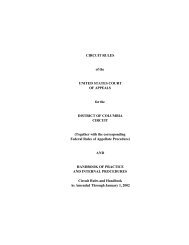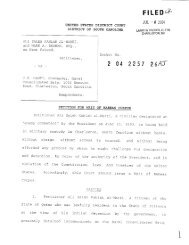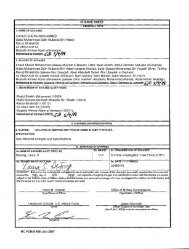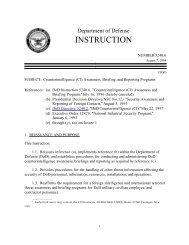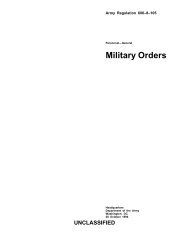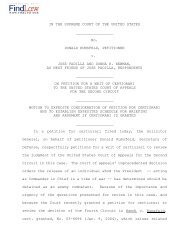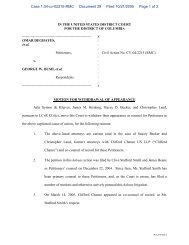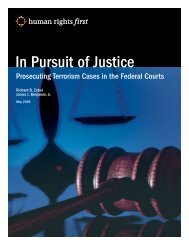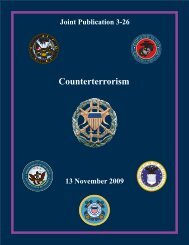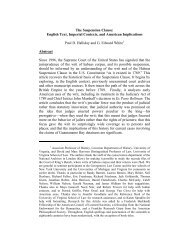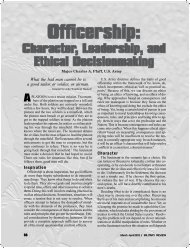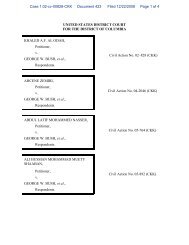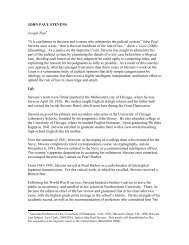Government Merits Brief - Hamdan v. Rumsfeld
Government Merits Brief - Hamdan v. Rumsfeld
Government Merits Brief - Hamdan v. Rumsfeld
You also want an ePaper? Increase the reach of your titles
YUMPU automatically turns print PDFs into web optimized ePapers that Google loves.
38<br />
Qaeda and thus does not assist petitioner. The President has<br />
determined that the Geneva Convention does not “apply to<br />
our conflict with al Qaeda in Afghanistan or elsewhere<br />
throughout the world because, among other reasons, al Qaeda<br />
is not a High Contracting Party to [the Convention].” J.A. 35.<br />
The President further determined that, “because [the Convention]<br />
does not apply to our conflict with al Qaeda, al Qaeda<br />
detainees also do not qualify as prisoners of war.” J.A. 36.<br />
The President’s determination represents a classic exercise<br />
of his war powers and his authority over foreign affairs more<br />
generally, see Curtiss-Wright, 299 U.S. at 320; was made in<br />
accordance with Congress’s resolution authorizing the use of<br />
force; and is binding on the courts, see Banco Nacional de<br />
Cuba v. Sabbatino, 376 U.S. 398, 410 (1964); Chicago & S. Air<br />
Lines, Inc. v. Waterman S.S. Corp., 333 U.S. 103, 111 (1948).<br />
The decision whether the Geneva Convention applies to a<br />
terrorist network like al Qaeda is akin to the decision whether<br />
a foreign government has sufficient control over an area to<br />
merit recognition or whether a foreign state has ratified a<br />
treaty. In each case, the decision is solely for the Executive.<br />
See Doe v. Braden, 57 U.S. (16 How.) 635, 657 (1853) (noting<br />
that “it would be impossible for the executive department of<br />
the government to conduct our foreign relations with any<br />
advantage to the country, and fulfill the duties which the Constitution<br />
has imposed upon it, if every court in the country<br />
was authorized to inquire and decide whether the person who<br />
ratified the treaty on behalf of a foreign nation had the power,<br />
by its constitution and laws, to make the engagements into<br />
which he entered”).<br />
Even if some judicial review of the President’s determination<br />
were appropriate, moreover, the standard of review<br />
would surely be extraordinarily deferential to the President.<br />
And, under any standard, the President’s determination is<br />
manifestly correct. Article 2 provides that the Convention is



